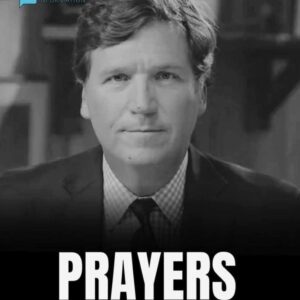Allegations of Improper Political Contributions
1.1 Details of the JQC Complaint
In a formal petition filed earlier this month, the Judicial Qualifications Commission charged Judge Moon with violating Florida Rule of Judicial Administration 2.045 and the accompanying Code of Judicial Conduct. The core allegation is that, between 2022 and 2024, Judge Moon made multiple campaign contributions to:
Kamala Harris—then a candidate for the 2020 Democratic presidential nomination.
Joe Biden—the eventual Democratic nominee and President of the United States.
ActBlue—a Democratic Party fundraising platform utilized by a wide array of progressive candidates and causes.
The JQC’s records indicate that these contributions totaled $2,115 and were made while Judge Moon was an active member of the Florida judiciary. Under Florida’s judicial canons, any direct financial support by a sitting judge of partisan political candidates or entities is strictly forbidden.
1.2 The JQC’s Recommended Sanction
As part of a proposed resolution—subject to approval by the Florida Supreme Court—the JQC has suggested:
Public Censure: A formal reprimand to be entered in the official court record, made available to the public.
Monetary Penalty: A fine equaling the total amount of her prohibited contributions ($2,115).
The JQC stated that these sanctions, combined, “will be sufficient to deter similar misconduct by the respondent (Moon) in the future and will also serve as a reminder to future candidates for judicial office” of their duty to maintain the integrity of judicial elections.
2. Prior Misconduct Referrals
Judge Moon is already awaiting a separate decision by the Florida Supreme Court on earlier allegations of unprofessional conduct. Those charges stemmed from two incidents in January 2024:
Courtroom Solicitation: In open court, Judge Moon reminded attorney Michael Jones that he had not returned her after-hours phone call regarding her re-election campaign—comments that the JQC characterized as coercive given the inherent power dynamic between judge and attorney.
Ex Parte Contact: She directly contacted a therapist involved in a case before her court, a move the JQC argued violated the prohibition on ex parte communications, which safeguard fairness by preventing one party from gaining private access to the judge without the opposing side’s knowledge.
Earlier this year, the JQC recommended a public reprimand for those two incidents as well. Judge Moon has agreed to accept that sanction, though the final decision rests with the Florida Supreme Court.
3. Florida’s Rules on Judicial Conduct and Political Activity
3.1 Rule of Judicial Administration 2.045
Florida Rule of Judicial Administration 2.045 governs judicial campaign practices. Key provisions include:
Prohibition on Partisan Activity: Judges and judicial candidates are prohibited from making contributions to or soliciting funds for any political party, political organization, or candidate.
Limits on Endorsements and Speeches: Judges may not publicly endorse or oppose candidates in partisan elections. They may attend nonpartisan forums but must avoid any action that could reasonably be viewed as political.
3.2 Code of Judicial Conduct Canon 7
The Code of Judicial Conduct sets forth principles to ensure judges remain nonpartisan and impartial. Canon 7 specifies that judges:
Shall not engage in political activity that would be inconsistent with the impartial performance of judicial duties.
Must refrain from activities that could create an appearance of impropriety or compromise public confidence in the judiciary.
Judge Moon’s donations—direct financial contributions to partisan candidates—are squarely barred under these provisions.
4. The Judicial Qualifications Commission: Oversight and Process
4.1 Composition and Mandate
The Florida Judicial Qualifications Commission is an independent state agency tasked with:
Investigating allegations of judicial misconduct or incapacity.
Holding formal hearings before JQC hearing panels.
Recommending disciplinary action—ranging from reprimand to removal—to the Florida Supreme Court.
The Commission consists of nine members: six appointed by the governor (including three lawyers and three nonlawyers) and three appointed by the Florida Supreme Court.
4.2 Investigative Procedures
Upon receipt of a complaint, the JQC:
Conducts preliminary fact-finding, requesting documents, campaign records, and sworn statements.
Decides whether to file formal charges. If charges are filed, the judge in question may negotiate a stipulated agreement—our current situation—or proceed to a public hearing.
Issues a recommendation to the Florida Supreme Court. Only the Court has authority to impose discipline, from reprimand up to removal from office.
Judge Moon has engaged with this process, indicating her willingness to accept sanction for both the campaign-contribution violations and the earlier misconduct claims.
5. Judge Stefanie Moon: Career and Community Involvement
5.1 Judicial and Legal Background
Education and Early Practice: Moon graduated from a major Florida law school and served as a state prosecutor before ascending to the circuit bench in 2015.
Circuit Court Assignments: As a Broward County Circuit Judge, she has presided over civil, family, and criminal matters, earning a reputation for efficiency and strong case-management skills.
5.2 Civic Engagement and Recognitions
Florida Supreme Court Historical Society: In 2024, Moon was nominated to a three-year term on the Society’s Board of Trustees, an honor that recognizes contributions to preserving Florida’s judicial history.
Community Outreach: She has participated in judicial-education programs, speaking at local schools and bar associations about the rule of law and civic responsibility.





